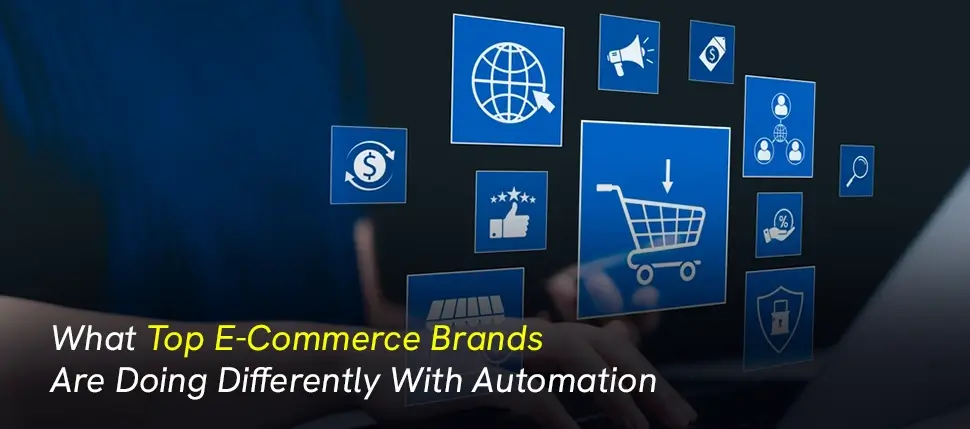There are no data to show here right now.

E-commerce isn’t slowing down in 2025. Customer expectations are rising, cart abandonment is still killing margins, and operational costs are squeezing profits. The brands leading the pack? They’re not just scaling with ads or discounts. They’re scaling with automation.
Here’s what top e-commerce players are doing differently. And how you can catch up before competitors outpace you.
1. Smart Inventory & Demand Forecasting
Manual stock checks and guesswork in forecasting lead to overstocks, dead stock, or painful stockouts. Customers hate “out of stock” messages, and finance teams hate wasted capital.
AI-driven demand forecasting can address that. It learns from purchase patterns, seasonal trends, and even social buzz. Automated inventory systems sync across warehouses and marketplaces in real time.
Pro Tip: Integrate forecasting engines with your OMS (Order Management System). Prediction without execution is just another dashboard.
2. Automated Customer Engagement
Generic emails and delayed responses push customers to competitors. Personalization at scale is nearly impossible if your team is stuck writing every reply.
You can deploy automation in chatbots, personalized campaigns, and triggered workflows. Think AI-powered conversations, cart recovery nudges, and loyalty program prompts—delivered at the right time, automatically.
Pro Tip: Use behavioral triggers, not just time-based ones. A cart abandoned after 10 minutes deserves a different nudge than one abandoned for 3 days.
3. Seamless Order Fulfillment
Manual pick-pack-ship slows down fulfillment. Errors mean returns. And delayed deliveries destroy customer trust.
But you can automate warehouse management with robotic picking, barcode scanning, and integrated shipping APIs. Orders flow from checkout to doorstep without human bottlenecks.
Pro Tip: Connect fulfillment automation with your last-mile delivery partners’ APIs. Real-time visibility is the difference between proactive updates and angry customer emails.
4. Dynamic Pricing Engines
The pain: Static pricing leaves money on the table. Competitors with automated repricing tools undercut you—or outsmart you in peak demand.
The solution: Dynamic pricing automation analyzes demand, competition, and customer behavior in real time. The system adjusts prices for margin protection and competitive positioning without constant manual tweaks.
Pro Tip: Set guardrails for floor and ceiling prices. Blind automation without strategy can turn into a race to the bottom.
5. Automated Fraud Prevention
Fraudulent transactions and chargebacks eat into margins. Manual reviews are too slow and too inconsistent to scale.
Fraud prevention engines using machine learning flag high-risk behaviors instantly. Even if it’s mismatched IP addresses, suspicious order volumes, or stolen card data.
Pro Tip: Tie fraud detection directly into your checkout flow. Post-purchase detection is already too late.
Final Thoughts
The leaders in e-commerce don’t just add automation tools. They build automation into the DNA of their business—from storefront to supply chain.
At Advantal Technologies, we help e-commerce brands:
Want to know exactly which automation strategy will move the needle for your brand?
Let’s talk. Our e-commerce tech experts are ready to future-proof your growth.
Reach out to explore opportunities, partnerships, or careers with us. Or simply fill out the form on the right for business inquiries - we typically respond within 24 business hours.